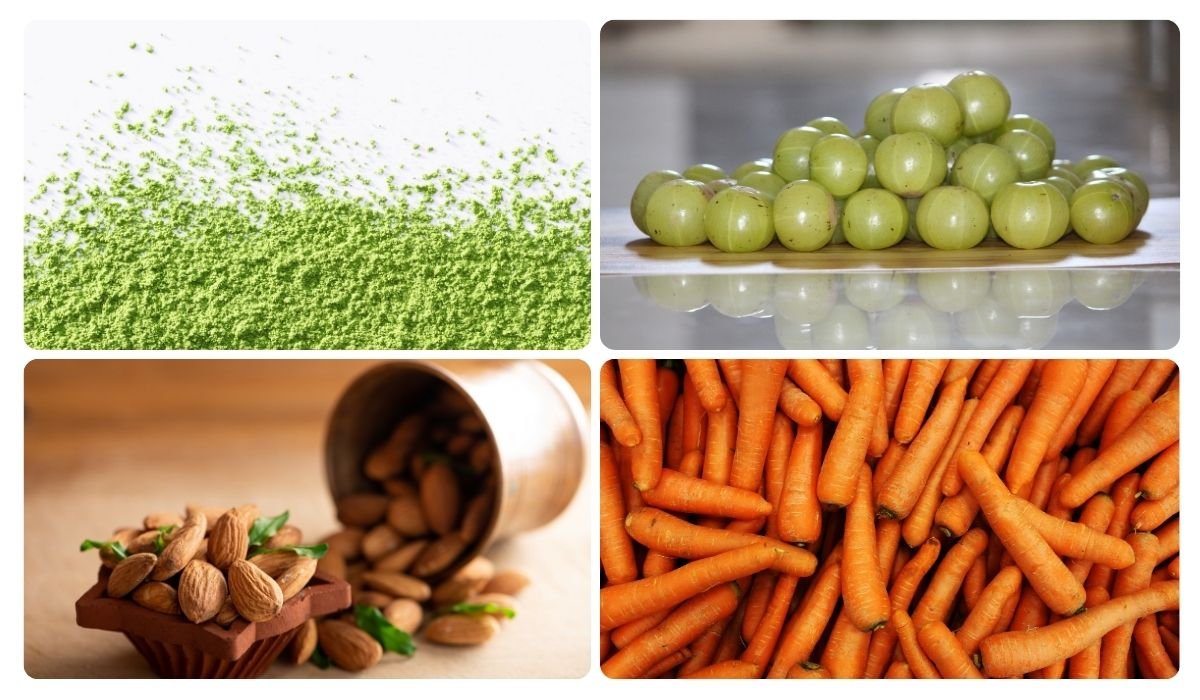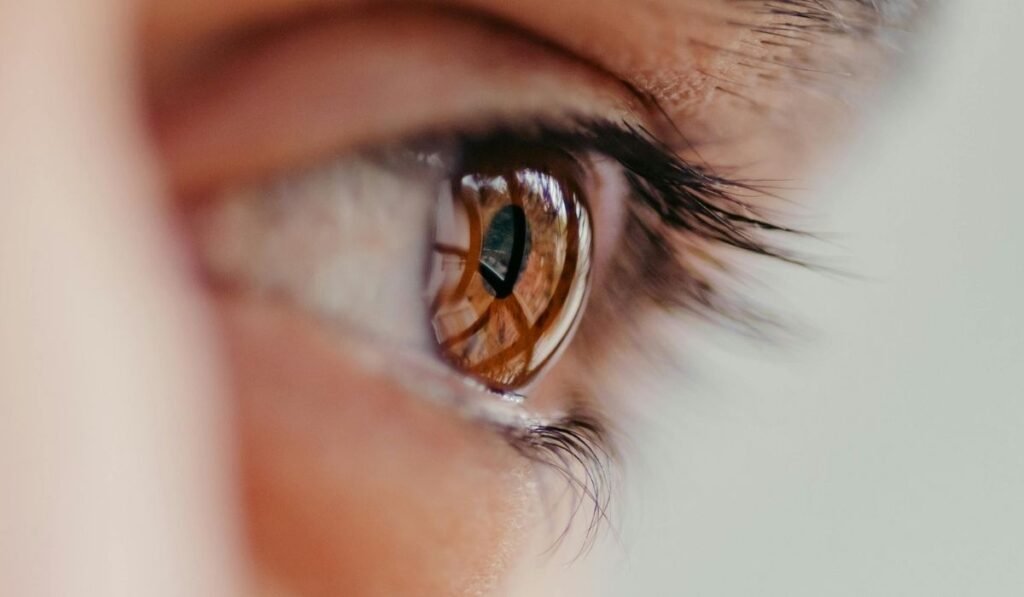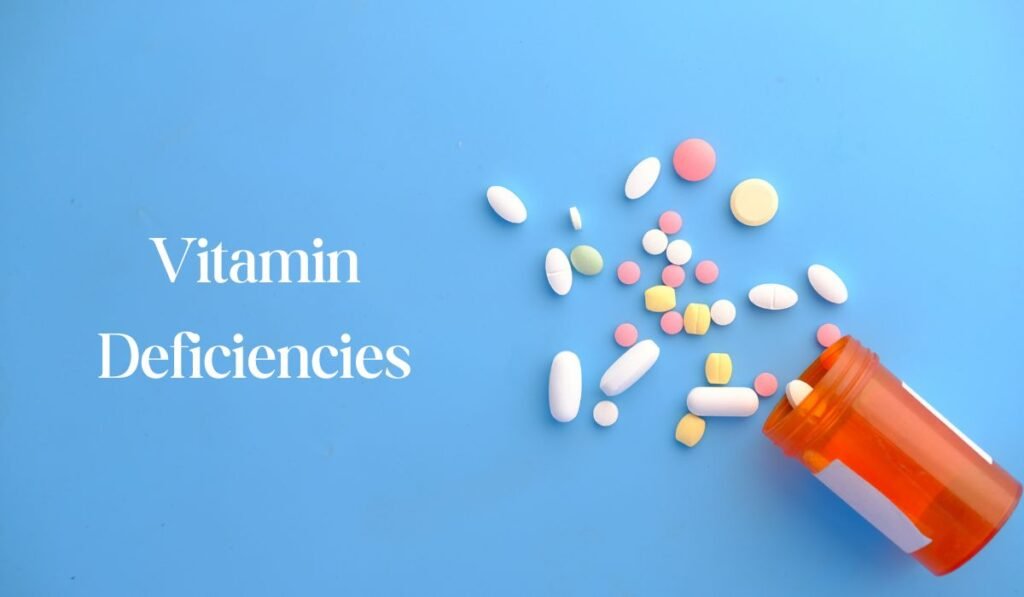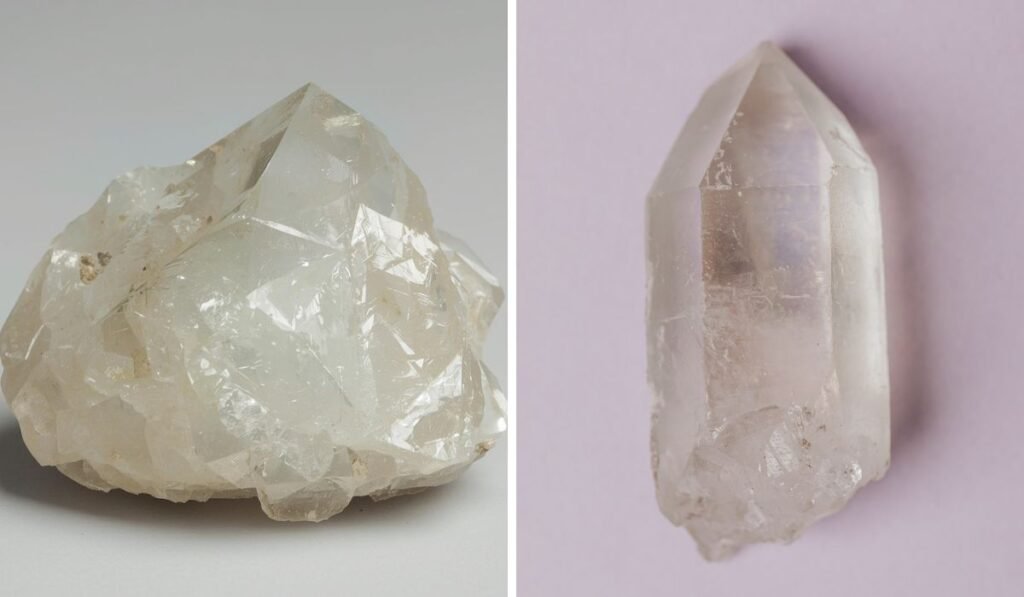Have you ever noticed how kids today start wearing glasses earlier than we ever did? Back in our school days, maybe one or two kids in class wore specs. Now, half the class has them. Screens are everywhere, nights stretch longer, and even teenagers complain of burning or watery eyes.
But here’s something worth thinking about: our ancestors didn’t face these issues, and they didn’t have fancy eye drops or blue-light filters either. Instead, they relied on a mix of natural foods and simple lifestyle rules — many of which are now being confirmed by modern science.
🧬 Why Science Says Your Daily Routine Affects Your Eyes
In 2017, Jeffrey C. Hall, Michael Rosbash, and Michael W. Young won the Nobel Prize in Medicine (2017) for discovering how our circadian rhythm (body clock) works.
Why does this matter for your eyes?
Because your retina (the light-sensitive part of your eye) follows the same clock. When your eating, sleeping, and screen habits are out of sync with your body’s natural rhythm, your eyes bear the strain.
👉 In short:
- Late-night scrolling = confused circadian clock = tired, strained eyes.
- Wrong food choices (low in antioxidants) = faster eye aging.
- Poor sleep = reduced eye repair at night.
That’s why building a lifestyle in tune with your body clock is now seen as a scientifically proven way to protect your eyesight.
🌿 Ayurveda’s 6 Superfoods for Healthy Eyes
Ancient texts like the Sushruta Samhita describe certain foods as netra-hitakara (eye-protecting). Interestingly, modern nutrition science confirms many of these benefits. Here are six that are simple, affordable, and surprisingly effective:
1. 🥕 Carrots (Gajar) – The Timeless Eye Protector
Carrots are packed with beta-carotene, which turns into Vitamin A — the vitamin your eyes absolutely need to function properly. Without it, the cornea (the clear front part of your eye) starts degenerating.
But here’s the fun part: in India, carrots are not just medicine — they’re part of memories. Think of gajar ka halwa in winter, or munching on raw carrots with a sprinkle of black salt during train journeys. That’s Ayurveda at work without us even realizing it.
✅ Practical tip: Cook carrots lightly (like in sabzi or halwa) instead of eating them raw — your body absorbs Vitamin A better that way. Consistent intake is linked with lowering cataract risk and slowing down eye aging.
2. 🌱 Saunf (Fennel Seeds) – Cooling the Fire in Your Eyes
Ayurveda calls fennel Netra Jyoti (light of the eyes). Even ancient Roman texts praised it as “the herb of sight.” Fennel has cooling properties that balance the excess heat (pitta) in the body, which is often the reason behind burning or watery eyes.
In Indian homes, fennel is served after meals as a digestive. But unknowingly, it’s also been protecting our eyes all along. Many grandmothers still make fennel tea with honey for kids during exams to reduce strain.
✅ Practical tip: Chew a spoon after meals, or boil a handful in water and sip as tea. Not only does it freshen your breath, it actually reduces eye strain from long screen hours.
3. 🌿 Green Moong Dal – Gentle, Light, and Protective
Green moong dal is one of the lightest and most cooling dals. Sushruta praised it as “netrayatna” (precious for the eyes). Its plant compounds reduce inflammation in tiny blood vessels of the eyes.
Think of those nights when your eyes burn after working late — moong dal khichdi with a dollop of ghee feels like medicine. Modern studies confirm that flavonols in moong protect retinal tissues, especially in people exposed to long screen hours.
✅ Practical tip: Have moong dal 2–3 times a week — as sprouts, cheela, or khichdi. Sprouted moong in particular is packed with live enzymes that rejuvenate the eyes.
4. 🧈 A2 Desi Cow Ghee – The Eye’s Natural Lubricant
Our eyes are made up of delicate tissues that need healthy fats to stay lubricated. Ayurveda has always called ghee chakshushya (beneficial for the eyes). Modern research too shows omega fatty acids help reduce dryness and irritation.
Anyone who’s grown up in an Indian household knows ghee isn’t just food — it’s therapy. From applying it on chapped lips to adding a spoon over hot dal, it’s the simplest everyday nourishment. Some families even use a drop of pure ghee in the eyes (though always under guidance).
✅ Practical tip: Use raw ghee on dal, rotis, or rice daily. If your eyes often feel tired, try massaging your soles with warm ghee before bed. You’ll be surprised how relaxed your eyes feel the next morning.

5. 🌰 Almonds – Tiny Powerhouses for Sharp Vision
Almonds are nature’s reminder of eye health — they even resemble the shape of eyes. Rich in Vitamin E, omega-3s, and antioxidants, they shield the eyes from oxidative stress caused by pollution, late nights, and excessive screens.
Our elders weren’t wrong when they told us to eat soaked almonds before school. In fact, Ayurvedic recipes like almond-pepper milk at night have been traditionally used to strengthen eyesight.
✅ Practical tip: Soak 4–5 almonds overnight, peel, and grind with 3–4 peppercorns. Boil in milk and drink warm before bed. Prefer small Gurbandi almonds over Californian ones — they are richer in natural oils.
6. 🍋 Amla – The Vitamin C King for Your Eyes
Amla (Indian gooseberry) is one of the richest natural sources of Vitamin C — 20 times more than an orange. It strengthens tiny capillaries in the eyes, reduces oxidative stress, and prevents early cataracts.
In Ayurveda, amla is part of Triphala, which is prescribed for stronger vision. Modern studies too show its antioxidants delay retinal degeneration.
✅ Practical tip: Have raw amla chutney, fresh juice on an empty stomach, or amla murabba. Consistent use reduces dark circles, puffiness, and keeps eyes youthful.
⚠️ Everyday Habits That Quietly Damage Eyes
Even the best foods won’t help if we keep repeating these mistakes:
- Rubbing eyes aggressively.
- Reading while lying down or traveling.
- Ignoring sunglasses in strong sunlight.
- Reading in poor lighting.
- Eating too much processed food and refined sugar.
👉 Quick Fix Habit: Try the 20-20-20 rule: every 20 minutes of screen time, look at something 20 feet away for 20 seconds. It relaxes eye muscles instantly.
🛠️ How to Practically Implement These Eye-Healthy Habits
Reading about superfoods is easy. The real question is: how do you actually make them a part of daily life without feeling overwhelmed? Here’s a simple routine you can start tomorrow:
- Morning:
- Start your day with a glass of amla juice or munch on 1–2 fresh amlas if in season.
- If you prefer warm drinks, have fennel tea with honey instead of regular chai.
- Mid-Morning Snack:
- Have soaked almonds (4–5) along with a fruit like guava or papaya. This is better than grabbing processed biscuits.
- Lunch:
- Add a carrot salad with lemon and black salt.
- Sprinkle a spoon of roasted fennel after meals — helps digestion and cools the eyes.
- Evening:
- If you need a pick-me-up, make green moong sprouts chat with onion, tomato, and lemon. Way better than fried snacks.
- While working, use the 20-20-20 rule for screen relief.
- Dinner:
- Go for something light like moong dal khichdi topped with a spoon of desi ghee.
- End your day early — ideally before 7 PM — to align with your body clock (remember, even Nobel-winning science says so!).
- Before Bed:
- Drink warm milk with almond-pepper paste.
- Massage your feet with a little warm ghee — surprisingly relaxing for both body and eyes.
👉 This isn’t about doing all of them every day. Even if you consistently follow 3–4 habits, you’ll start noticing less strain and more freshness in your eyes within weeks.
FAQs
Q1. Can food really improve eyesight?
Yes, but with a little clarity: eating the right foods won’t magically turn weak eyes into perfect vision overnight. However, studies confirm that nutrients like Vitamin A, C, E, zinc, and omega-3 fatty acids support eye health, slow age-related decline, and reduce risks of conditions like macular degeneration. So, food is more like long-term protection than an instant cure.
Q2. Which foods are scientifically proven to support eye health?
Leafy greens (spinach, kale), carrots, sweet potatoes, citrus fruits, nuts, seeds, and fatty fish (like salmon) are backed by research. These foods provide antioxidants and essential fatty acids that keep the retina and cornea healthy.
Q3. How long does it take to see results from dietary changes?
Think of it as a marathon, not a sprint. Most people notice subtle improvements like reduced eye dryness or less strain within a few weeks. But for bigger benefits, consistency over months is key.
Q4. Can food or Ayurvedic treatments replace my glasses or contacts?
In short, No—diet alone won’t reverse refractive errors or instantly replace glasses.
But: Some Ayurvedic clinics (like Matha) report improvements with therapies such as Akshi Tarpana and other traditional procedures, and small clinical studies exist. But these are limited in size and quality. Mainstream ophthalmology relies on proven treatments—corrective lenses, low-dose atropine drops, orthokeratology, or surgery.
👉 If you want to try Ayurvedic eye care, do it alongside your regular ophthalmologist’s guidance. Always get baseline tests (refraction, visual acuity, axial length) and never skip corrective lenses for daily safety.
Q5. What lifestyle habits should I follow along with diet?
Good habits amplify the benefits of food. Follow the 20-20-20 rule (every 20 minutes, look at something 20 feet away for 20 seconds), limit screen time, wear sunglasses outdoors, stay hydrated, and get regular eye check-ups.
Q6. Are supplements as effective as natural foods?
Supplements can help if your diet lacks certain nutrients, but natural whole foods are absorbed better and bring extra benefits like fiber and phytonutrients. If you’re considering supplements, consult an eye specialist first.
🔄 Quick Recap — Natural Eyesight Boosters
- Carrots: Strengthen cornea with Vitamin A.
- Fennel Seeds: Cool burning, watery eyes.
- Green Moong Dal: Reduces inflammation in tiny blood vessels.
- Desi Cow Ghee: Natural lubrication for dry, tired eyes.
- Almonds: Vitamin E & omega-3s shield from oxidative stress.
- Amla: Vitamin C powerhouse to prevent early cataracts.
- Daily Routine: Follow the 20-20-20 rule, eat on time, sleep on time.
✨ One Simple Starting Habit: Add just one of these foods in every single meal — carrot with lunch, fennel after meals, ghee at dinner. Small, doable steps win in the long run. Over months, your eyes will thank you
💡 Final Takeaway
Your eyes don’t need big lifestyle overhauls. They just need small, daily acts of care. A spoon of ghee on your dal, chewing fennel after lunch, having moong dal khichdi on tired nights, soaking almonds before bed, and keeping amla in your diet — these add up.
Combine this with sleeping on time and giving your eyes screen breaks, and you’re already doing more than 90% of people around you.
Nikita Palesha is a wellness advocate and eco-conscious writer who shares simple, sustainable tips for everyday living. She’s passionate about mindful choices that support a healthier planet and a balanced lifestyle.




